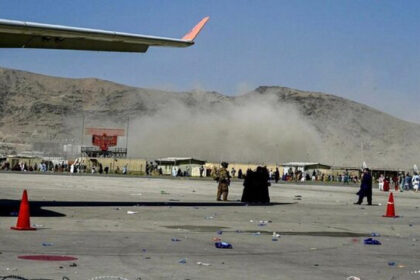RASC News Agency: Dozens of Afghanistani civil society organizations, in collaboration with international human rights groups, have issued an open letter to the United Nations Human Rights Council, demanding the establishment of an independent accountability mechanism to address the Taliban’s ongoing and systematic violations of fundamental rights. Published on Thursday, August 28, the letter calls on member and observer states of the Council to act without delay in creating this mechanism, which, according to its drafters, must investigate all cases of human rights abuses committed by the Taliban past, present, and future. Particular emphasis is placed on ensuring accountability for the Taliban’s brutal repression of women, as well as the persecution of Afghanistan’s LGBTQ+ community.
Civil society activists underline that documenting, recording, and meticulously analyzing these cases is crucial to dismantling Afghanistan’s entrenched culture of impunity one that has persisted for decades and now enables the Taliban to impose unchecked violence and discrimination. The letter further stresses that individual perpetrators of human rights violations, including Taliban leaders and enforcers, must be identified and brought to justice. According to the appeal, the proposed mechanism would complement the mandate of Richard Bennett, the UN Special Rapporteur on the situation of human rights in Afghanistan. In a country where the judicial system has collapsed under Taliban rule and where courts have been reduced to instruments of repression cloaked under a narrow interpretation of Sharia, such an international body is deemed essential to restore even a semblance of transparency and justice.
Human rights advocates argue that the Taliban have institutionalized a so-called justice system that offers no protection to citizens and deliberately denies fairness, equality, and due process. Instead, this system entrenches the group’s authoritarian grip, leaving the Afghanistani population defenseless against arbitrary punishment, gender-based violence, and systemic discrimination. Both Bennett and leading rights organizations have repeatedly underscored the urgent need for an independent and internationally mandated accountability mechanism. Civil society groups contend that the creation of this mechanism would not only provide victims of Taliban brutality with access to justice, but would also deter further abuses by stripping away the group’s shield of impunity. More importantly, such a step could mobilize stronger international support and increase diplomatic pressure on the Taliban, forcing the group to answer for its crimes before global scrutiny.
Over the past four years, however, the UN and its member states have been widely criticized for their hesitation and muted response to the Taliban’s widespread abuses. Afghanistani activists and human rights defenders have consistently warned that this posture of appeasement has emboldened the Taliban to deepen their authoritarian practices without fear of consequence. According to many activists, international actors including UN member states and certain global institutions have often chosen cautious engagement over meaningful accountability. Rather than confronting the Taliban’s crimes directly, they have favored quiet diplomacy, a strategy that has neither curbed the violations nor offered protection to victims. This reluctance has in fact enabled the Taliban to aggressively enforce discriminatory edicts against women, children, and sexual minorities with even greater confidence.
Civil society representatives warn that this culture of appeasement has eroded public trust, weakened the credibility of the international human rights framework, and silenced countless victims whose suffering has gone undocumented. The absence of coordinated global pressure, they argue, has granted the Taliban full freedom to act with impunity, perpetuating a cycle of repression and fear. Against this backdrop, the recent open letter to the Human Rights Council represents not only a call for justice, but also a demand for the international community to break its silence. Establishing an independent accountability mechanism, Afghanistani activists assert, is a decisive step toward ending decades of impunity, exposing the Taliban’s crimes to the world, and restoring hope of justice for the countless victims whose voices the regime has sought to suppress.






